AMMAN — What we wear is more than just fabric put together to serve a utilitarian purpose. Clothing reflects local identity and culture. Traditional clothing is still produced and worn in various fashions and styles in Jordan, one such couturière is Lina Masri.
اضافة اعلان
“
Qoutba”, the Arabic word for stitch, is a local clothing brand launched in 2014 by fashion designer Lina Masri, which reflects elements and features of local culture and heritage. Through it, Masri has shown her love and passion for the clothing industry by adding a different touch of creativity to each of her designs.
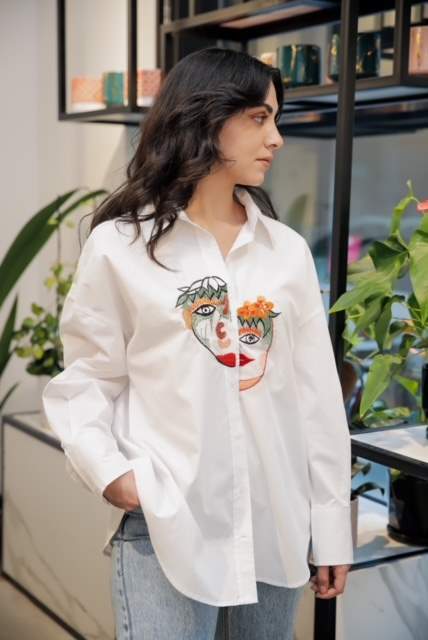 (Photo: Handout from Qoutba)
(Photo: Handout from Qoutba)
The firm partnered with female artisans from local communities to create traditional and contemporary handcrafted embroidered products ranging from clothing to home décor. Masri leveraged her experience as an interior designer and her passion for fashion to create an iconic local brand, uniting heritage and fashion.
Masri told
Jordan News in an interview that one of her first unique designs was embroidered denim. She added traditional handcrafted embroidery to a denim jacket. She also designed a limited edition clutch bag decorated with images of Amman’s streets, and Amman architectural scene, which was very popular among customers.
“During Amman Design Week in 2014, Qoutba was chosen to display our items, so I took a shop in Downtown Amman, near the Roman Theatre, to showcase our products,” Masri said.
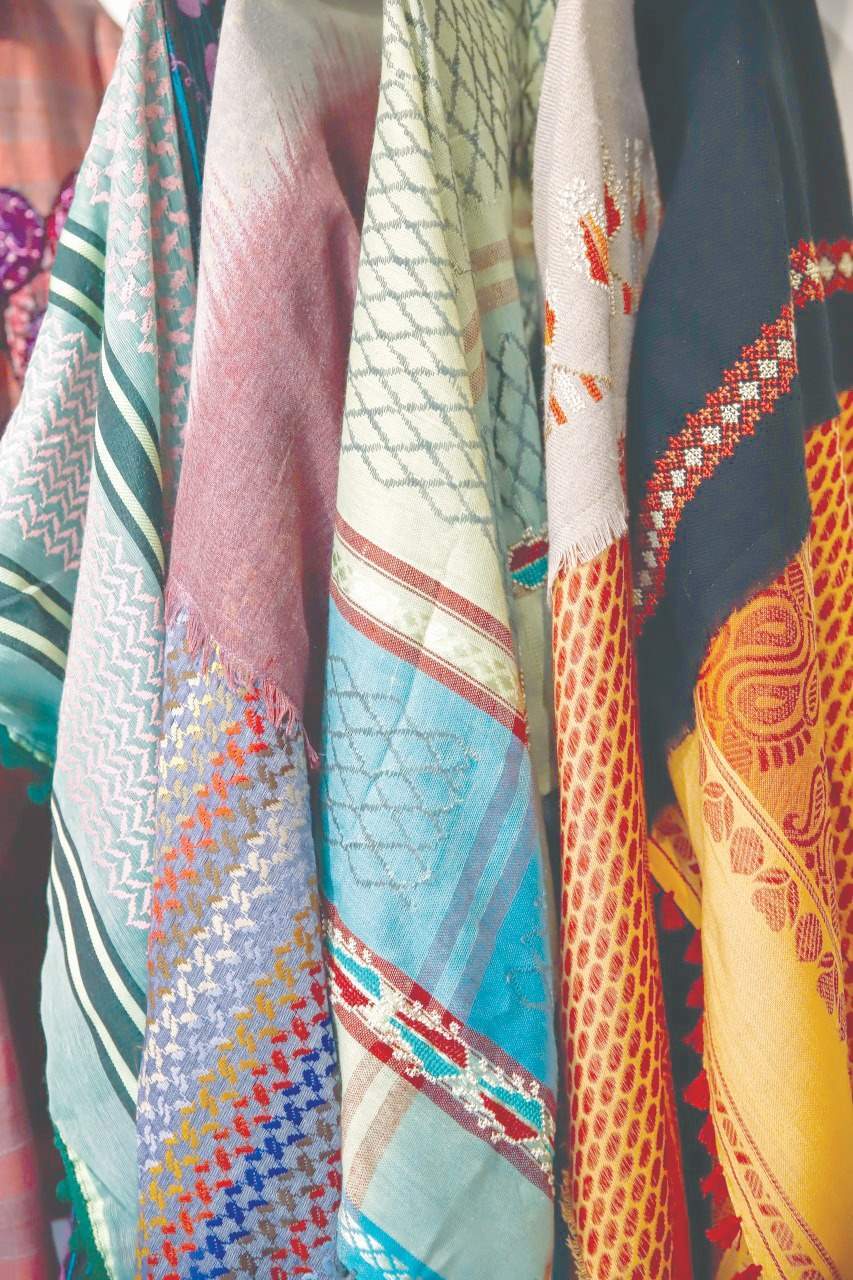 (Photo: Handout from Qoutba)
(Photo: Handout from Qoutba)
The designer’s passion for fashion began when she took part in Jordan’s first fashion show as a model back in the 1980s. The show was title “Jordan Through the Ages” and was opened by the late King Hussein and Queen Noor. The show toured a number of countries, including the US and Iraq.
In 2014, the designer started to design and create fashion pieces. Qoutba is a symbol of our identity, authenticity, and culture, with a simple stitch, it mixes legacy, tradition, and fashion.
Qoutba designs are inspired by enthusiasm for ethnic designs as well as a passion for modern aesthetics. “Qoutba is not a high street fashion (store), there is an authentic and cultural touch to it. Qoutba combines high street fashion and traditional fashion with a cultural background,” Masri said.
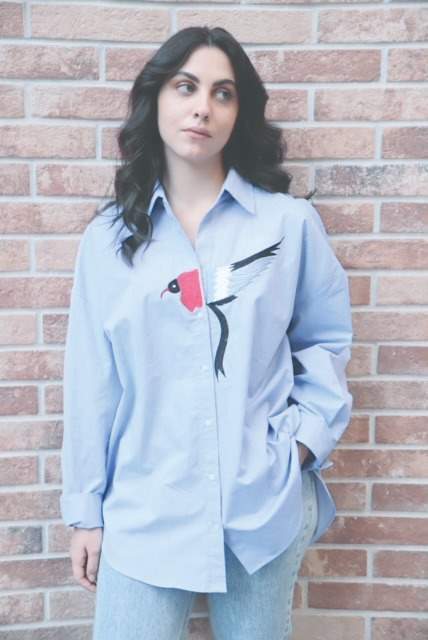 (Photo: Handout from Qoutba)
(Photo: Handout from Qoutba)
Her embroidered denim jackets pay homage to pop art, they include images of iconic movie stars such as Sophia Loren, which combines modern traditional designs with a touch of classicism. Masri said that fashion designs that combine modern fashion and authenticity are in demand and getting a lot of positive feedback from customers.
She said that many Jordanians who live abroad want things that reflect their eastern and Arab identity and traditional culture, and they go to Qoutba designs which reflect their identity, but with a modern touch. It fits both casual and classic styles, good for attending cultural events, or as day-to-day wear.
“I worked to achieve the combination of modern and traditional fashion styles, and I think I have reached that level,” Masri said.
The latest collection was launched last year, and in order to create new things, she worked on blending the designs of the Palestinian and Jordanian Keffiyeh by adding traditional embroidery to them, and merging them with other materials like Pashmina, a fine variety of spun cashmere.
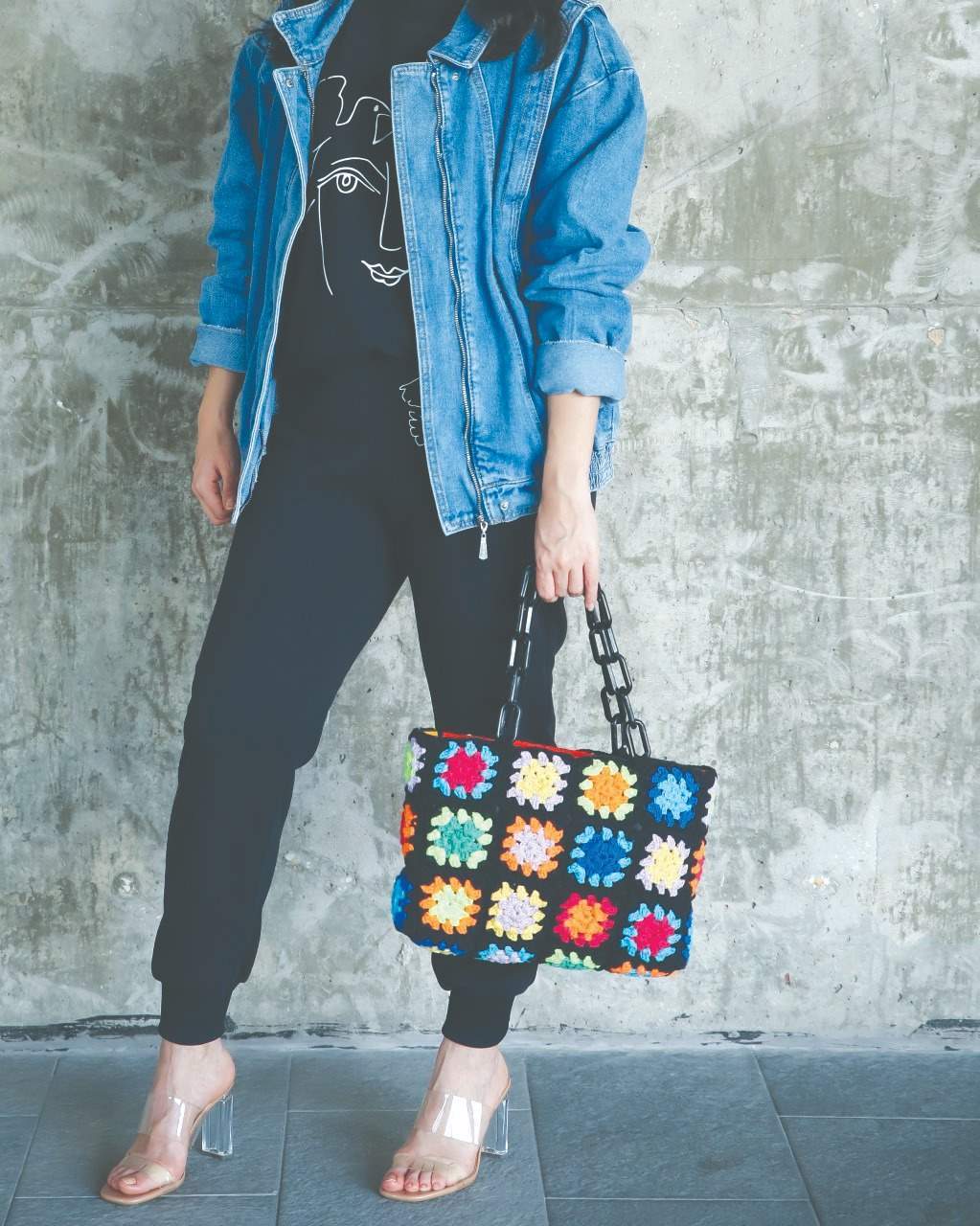 (Photo: Handout from Qoutba)
(Photo: Handout from Qoutba)
“The Palestinian and Jordanian embroidery is very rich, and I found it to have varied and beautiful colors and designs. This is our heritage, our culture, and our history, and it must be preserved for the ages while also fitting our modern lifestyle,” Masri said.
This year Masri collaborated with another artisan who makes crochet wear, and she combined it with modern design in order to produce various products, such as coats and jackets. This is a special line for Qoutba. “I am in the phase of collaborating with other artists in order to create variety and add new touches,” she said.
Qoutba seeks to work on developing and empowering women in the local community, as well as encouraging them to help themselves, which will have an impact on their families and community at large.
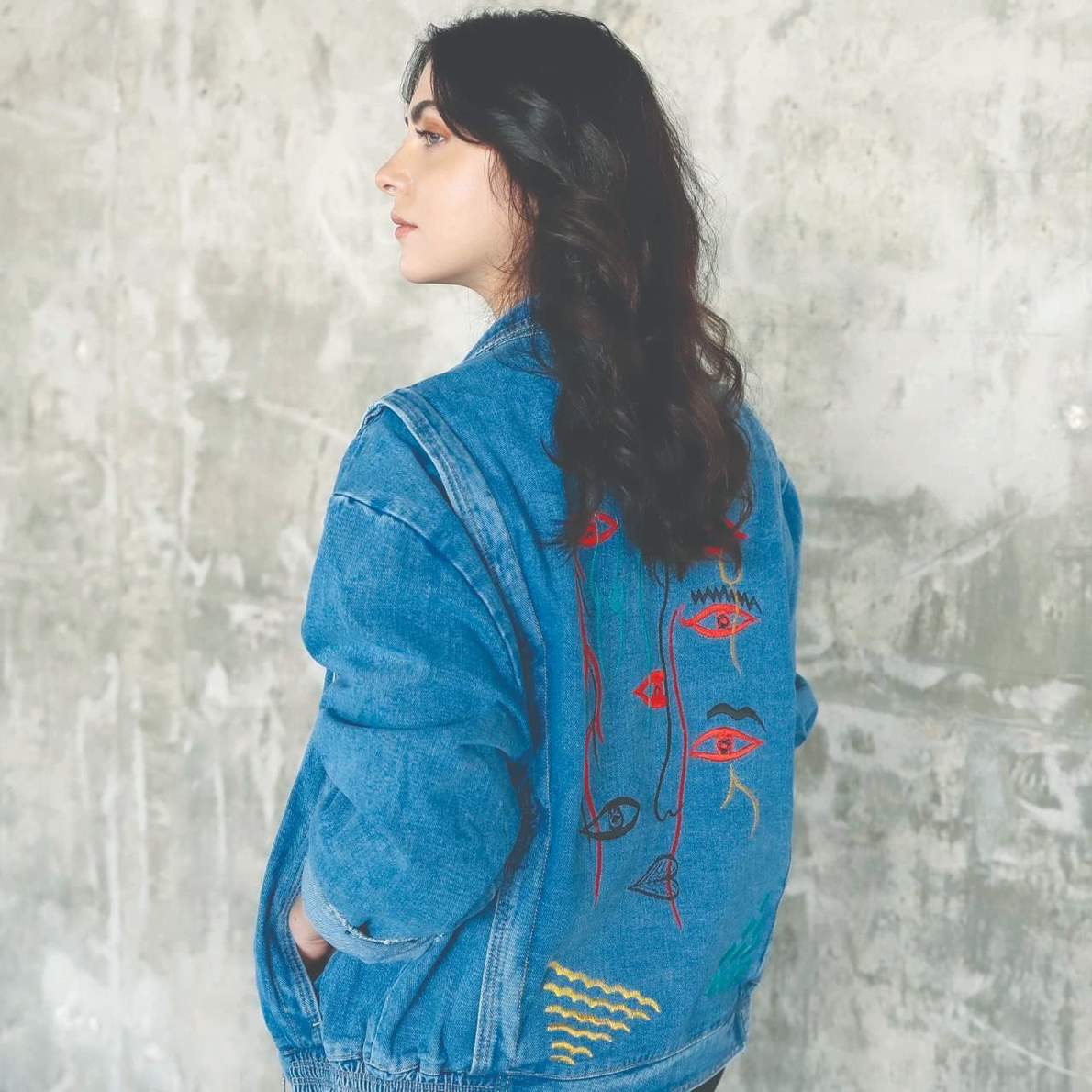 (Photo: Handout from Qoutba)
(Photo: Handout from Qoutba)
Local artisans hand embroider many of her items. Masri said that she also collaborates with a group of tailors on her designs. She also operates with a free-motion sewing machine, which allows stiches to be moved anywhere, in any direction, and to produce any design or pattern. The free-motion sewing technique is not computerized but hand guided, she said.
Masri visits rural areas in Jordan such as the Jerash and Gaza Camps, where she claims that her work has motivated rural girls and women and enhanced their skills and capabilities. Qoutba has had a significant impact on the local community.
“Female empowerment is one of the main things. Moreover, the work has added a kind spirit to the community by supporting local women and their families,” Masri said.
Qoutba offers a diverse selection of women’s clothing, including shirts, scarves, jackets, and more. In addition to fashion, Qoutba has a home decor line that contains decorative items such as cushions, chairs, bed covers, table covers, and more.
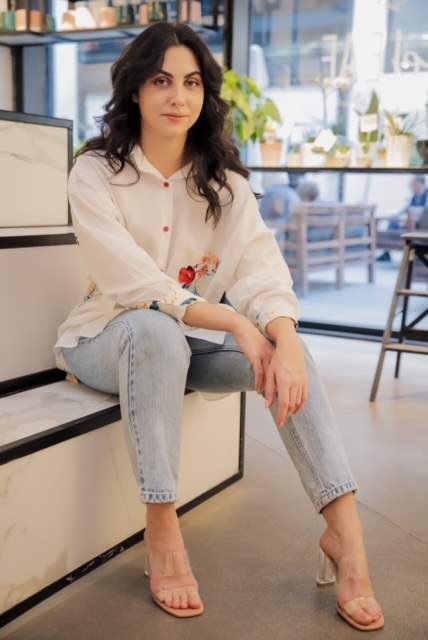 (Photo: Handout from Qoutba)
(Photo: Handout from Qoutba)
The designer does her research in order to have a clear idea before she starts designing her new collection. She usually starts by scrolling through social media platforms such as Instagram and Pinterest, to get inspiration from new collections and trends around the world.
In a new collection, Masri combined fashion with art, and designed wearable “art jackets”, that included a selection of embroidered artworks. She said that she loves art, and believes that it has the power to give any item a unique touch.
Qoutba’s collections are seasonal, every collection has vintage vibes and colors that go with each season. According to the designer, the collections are developing, and it is possible to add new products or re-design existing products with a new twist if there is a demand for it. Masri said that recently Her Royal Highness
Queen Rania has worn one of Qoutba’s shirts.
The designer works on adding new modifications to each of her designs, and produces pieces in more than one cut. She decides on the length of the piece, it can be a short or a long shirt, in order to meet all styles.
Masri said that she faced many challenges and difficulties during the COVID-19 pandemic, as demand for he products dropped during the lockdowns. She said that it had a disastrous impact on her business, but added that she is working on increasing the volume of sales.
She now displays Qoutba’s products at Sweifieh Village, and is willing to expand her business to create an online shop.
“We have to be proud of our culture and our heritage, which contains many beautiful designs that must be preserved,” Masri concluded.
Read more Fashion







